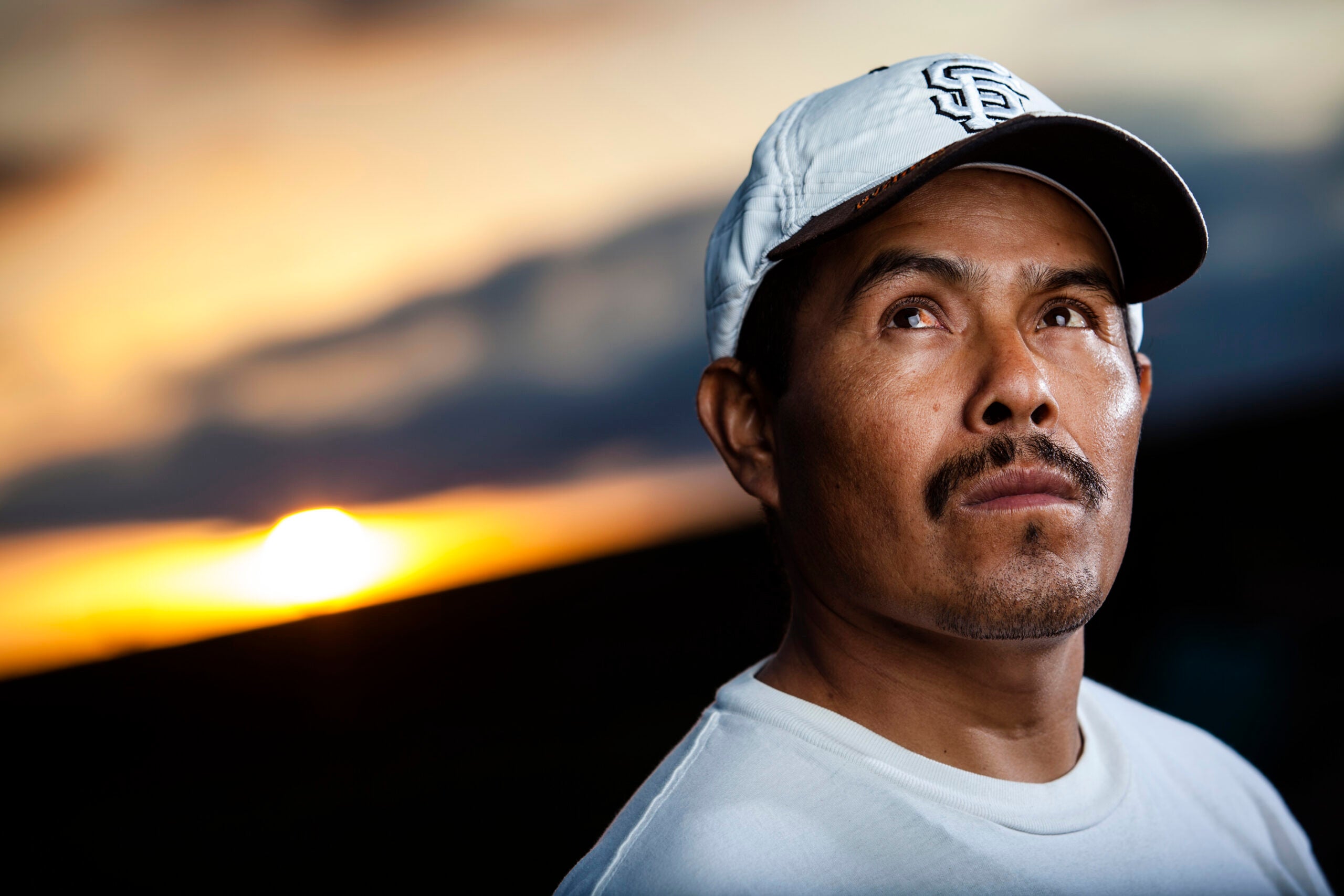Pesticides in the Air: A Farmworker’s Reality
Victorino’s story is part two in a weekly series of personal narratives from farm and agricultural workers, illustrating the need for stronger worker and safety protections against pesticide exposure. To get beyond the statistics of 10,000 to 20,000 pesticide poisonings on farms a year in this country, we go to the frontlines, beginning in California.

This page was published 11 years ago. Find the latest on Earthjustice’s work.
Victorino’s story is part two in a weekly series of personal narratives from farm and agricultural workers, illustrating the need for stronger worker and safety protections against pesticide exposure. To get beyond the statistics of 10,000 to 20,000 pesticide poisonings on farms a year in this country, we go to the frontlines, beginning in California.
I’ve been exposed to pesticides many times while working in the fields. Now, I try to protect myself because I know better than to count on anyone else to look after my fellow workers and me. Just recently, workers in a nearby field were spraying. We asked, “Hey, what are you doing?” They replied, “Don’t worry. It’s just sulfur.” Because of the lack of enforcement, even if we did complain no one would investigate or take action.
When the wind is blowing in my direction and I see a drift coming towards me, I walk away and cover my nose and mouth with my sweatshirt because I know that most of the pesticides used in the fields are harmful and can make me sick. Even if they get mad at me for walking away, I am simply not going to put myself in harm’s way anymore.
One of my coworkers was badly poisoned by pesticides exposure and missed many days of work. Now every time he smells the chemicals, his nose starts bleeding and he starts vomiting. He can’t afford to stop working because of lack of medical insurance so he lives with the pain. It makes me so sad to see my friends poisoned by pesticides.
We are forced to work in toxic fields because the supervisors aren’t being supervised. In the fields, my eyes are always irritated. I have cataracts now, and I can’t afford to get my eyes fixed. And I’m not alone. Many people in the fields have damaged eyes. I want to find a better job but I have two small children and an 18-year-old that I have to support. My oldest is now a farmworker, and I would do anything to keep him in school so he can find a better life than this.
Earthjustice will be sharing farmworker stories until the Environmental Protection Agency finalizes an updated Worker Protection Standard (WPS). To tell Administrator Gina McCarthy that agricultural workers deserve the same workplace safety standards as every other industry, take action today. Victorino’s story is one of a series that highlight the changes that need to be made to the WPS.
The California Regional Office fights for the rights of all to a healthy environment regardless of where in the state they live; we fight to protect the magnificent natural spaces and wildlife found in California; and we fight to transition California to a zero-emissions future where cars, trucks, buildings, and power plants run on clean energy, not fossil fuels.
The Florida regional office wields the power of the law to protect our waterways and biodiversity, promote a just and reliable transition to clean energy, and defend communities disproportionately burdened by pollution.